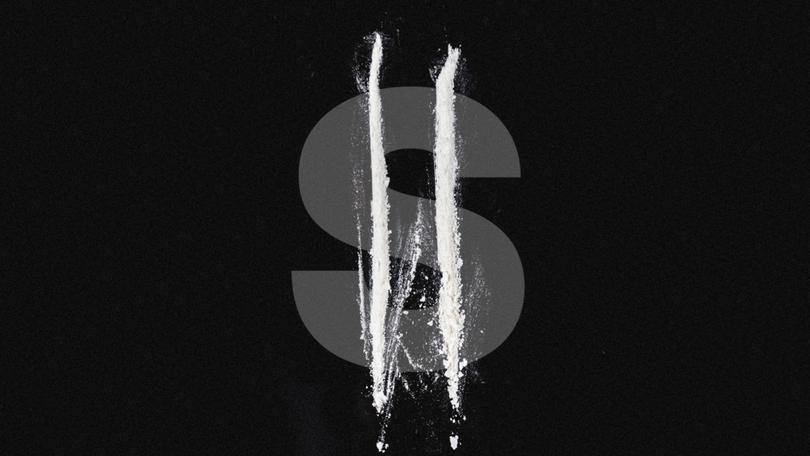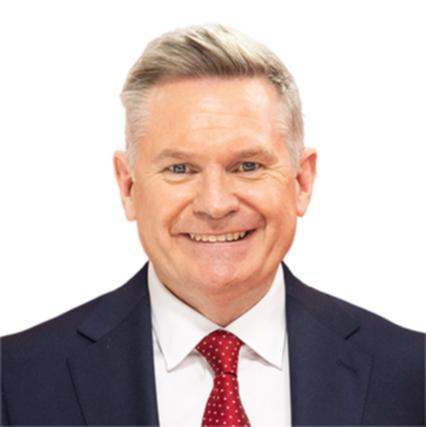MICHAEL USHER: Cost of living crisis hasn’t quenched our appetite for drugs
MICHAEL USHER: The cost-of-living crisis is making us rethink our spending on just about everything. Except, it seems, drugs.

We’re losing the war on drugs.
It’s not for any lack of vigilance by police on our borders or streets, where the powders, pills and chemical liquids are imported and sold.
It’s just that Australia’s appetite for drugs is insatiable and according to the police I’ve spoken with in the past two weeks, it’s a world-leading demand that we just can’t control.
Sign up to The Nightly's newsletters.
Get the first look at the digital newspaper, curated daily stories and breaking headlines delivered to your inbox.
By continuing you agree to our Terms and Privacy Policy.If the cost-of-living crisis was measured in our consumption of illegal drugs, there would be no cost-of-living crisis.
No matter how tough these times may be, it seems thousands of Australians — tens of thousands of Australians — have enough spare cash to not only consume increasing amounts of cocaine, heroin and methamphetamines, but also pay increasingly high prices for them.
Prices, according to our Federal police, that are marked up above and beyond what any other drug user pays for the same drugs anywhere else in the world.
In a Spotlight interview I recently did with AFP Assistant Commissioner Kirsty Schofield, she told me the markup on drugs, especially on cocaine and methamphetamine, in Australia is astronomical.
Drugs sourced for less than $5000 a kilo in Mexico or south-east Asia, are selling for $200,000 here in Australia.
It is, according to Assistant Commissioner Schofield, high risk and high return for the drug importers and sellers.
Australia is such a lucrative market she says, that some 70 per cent of international drug exports from countries of origin are often destined for Australia.

Against those sobering statistics, we’re seizing more drug imports than ever before. And the importers are trying every trick they can dream up to crack our borders.
Think of all the crazy, covert ways a Mexican cartel might try to get their illegal shipments into the US, and it’s already happening here, I learned.
Submarines full of drugs, metal boxes stuck to a ship’s hull, “dark flights” where mystery planes fly low off into our top end and land in remote bushland, liquid drugs hidden in tractor parts, ghost yachts abandoned and intercepted off our coast.
All have been tried and caught or stopped in recent years.
There is no limit to how the drug syndicates try to penetrate our borders, to land their dirty cargo on our shores for swift collection and distribution. High risk and high reward are motivation it seems for a lot of innovation.
Innovation which these days also involves some cunning technology.
The incredible takedown in recent weeks of a criminal syndicate using the Ghost app was a masterclass in detective work by the Australian Federal Police.
This communications app was developed specifically for a ruthless network of drug dealers.
When the AFP’s tech brains cracked the app, before any other authority in the world, officers spent four months reading and watching every word of every message within this drug syndicate which had no clue they’d been hacked.
Working under the name of Operation Kraken, the AFP watched as drug deals were hatched, and ultimately identified 50 threats to life in a string of violent messages.
That’s when they pounced in early morning raids, arresting the tech kingpin who made the app and allegedly ran the operation, plus up to 50 operatives.
Assistant Commissioner Schofield took me deep into the secure fortress that is the AFP’s Sydney headquarters to the forensic laboratory where they were keeping some of the seized evidence.
She showed me phones taken from one of the arrested drug dealers, which carried the Ghost app. She fired up the phone and opened the app — a regular modern smart phone with a well-designed app that looked like any other you could download and install.
A phone that only the day before had been in the hands of a violent drug dealer was right there in the hands of one of our senior cops, showing me how easily this criminal network operated.
All along they thought only their closed group of users could see their deals, threat to kill, assault, steal, distribute and import, but in fact Kirsty Schofield and her team of AFP investigators had been shadowing.
Turns out the AFP was the real ghost in the app.
But what all that confirmed for our police and border teams was that demand for drugs in Australia justifies this level of technical and digital skill to risk importing mass quantities of drugs into the country.
It’s worth it to these drug supply networks to take the chance to get their product to hungry consumers who will pay sky high prices to get sky high.
That bag of powder or pills after work or at a party is ultimately linked to someone being killed, bloodied, abused or jailed.
But somewhere that messaging has been lost.
I guess the rise in other threats to our health and mental health has taken over, such as online abuse.
Or perhaps the COVID pandemic sucked the life out of the Government’s will to warn people about public health threats.
Whatever it is, the “drugs are bad” warning seems to have been parked back in the 80s and 90s.
Might be time to give our cops a hand and reduce surging demand by reminding users that drugs kill — not just you, but also the third world workers making them, and anyone else who gets in the way of the gangs getting their gear up your nose, in your veins and straight to your brain.
